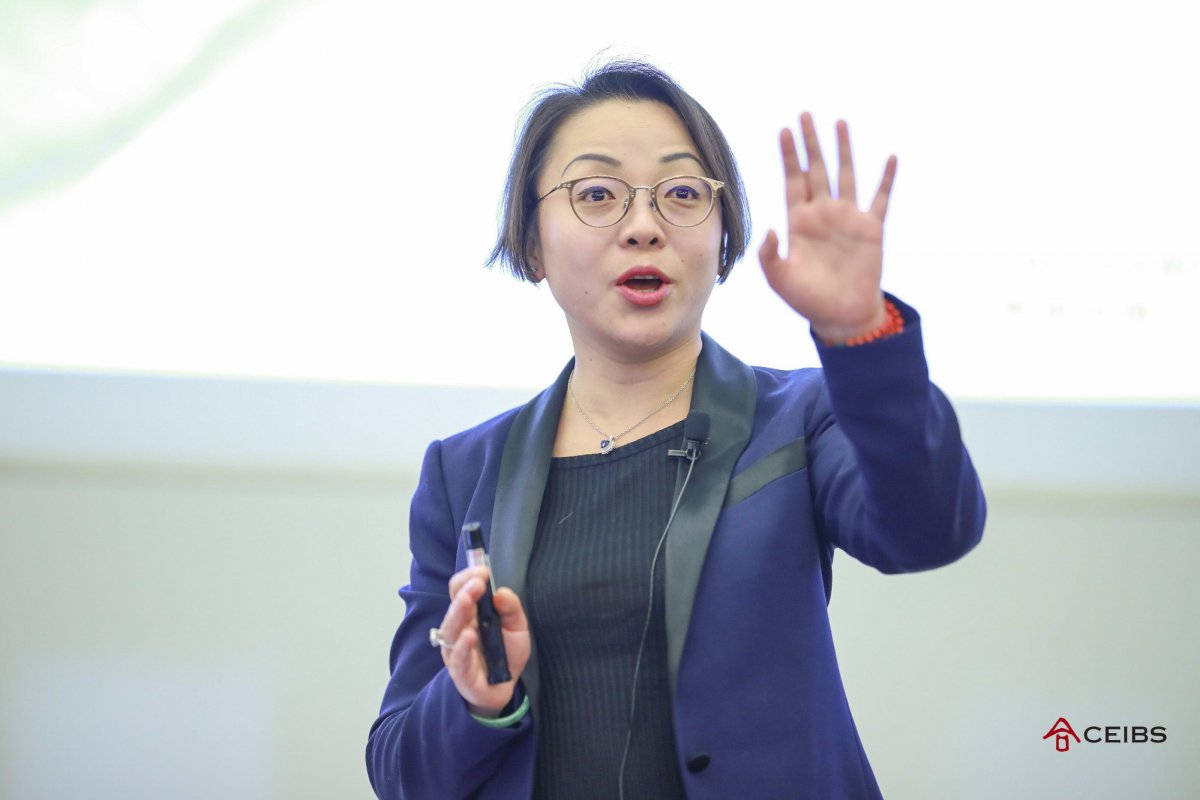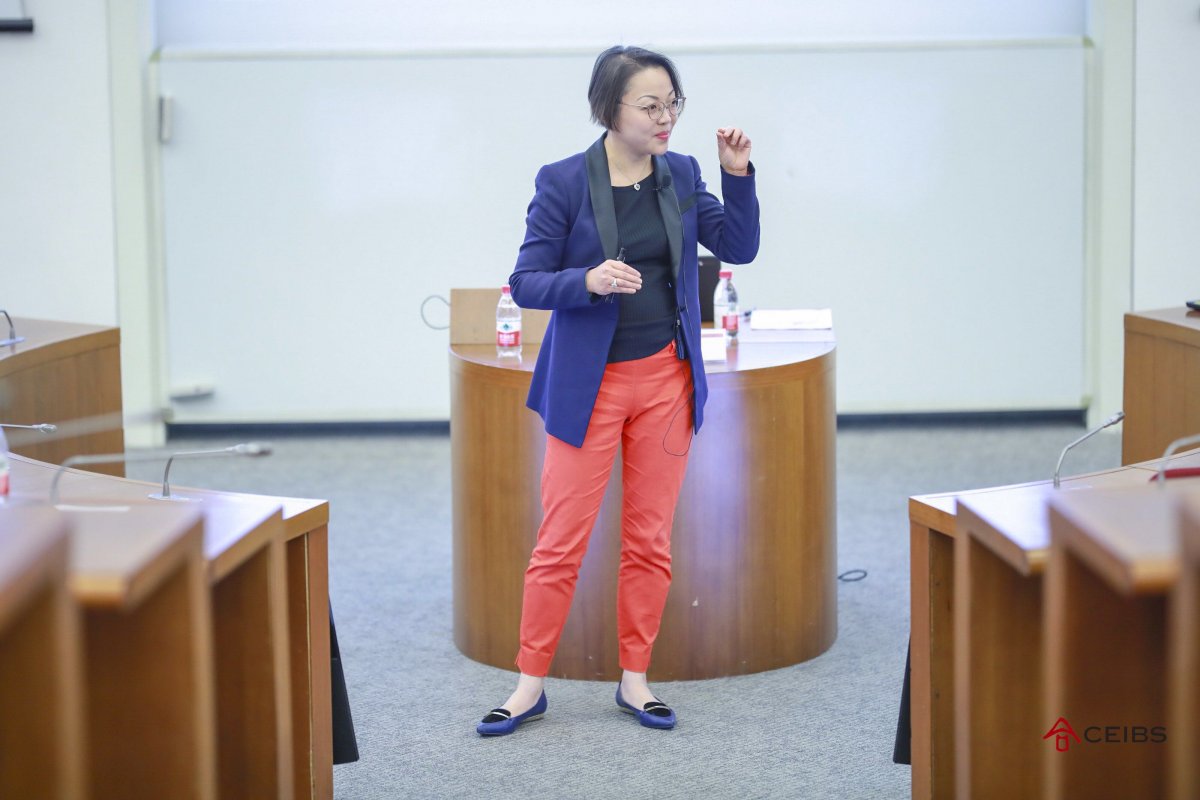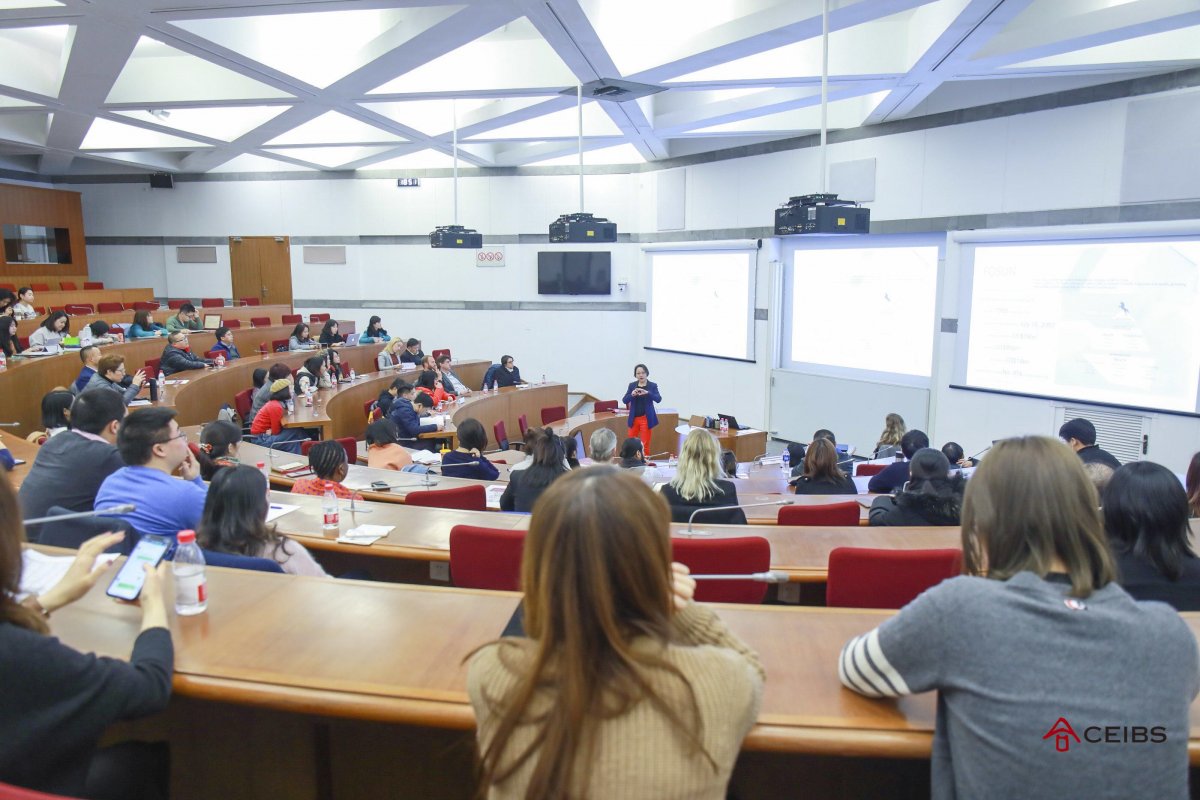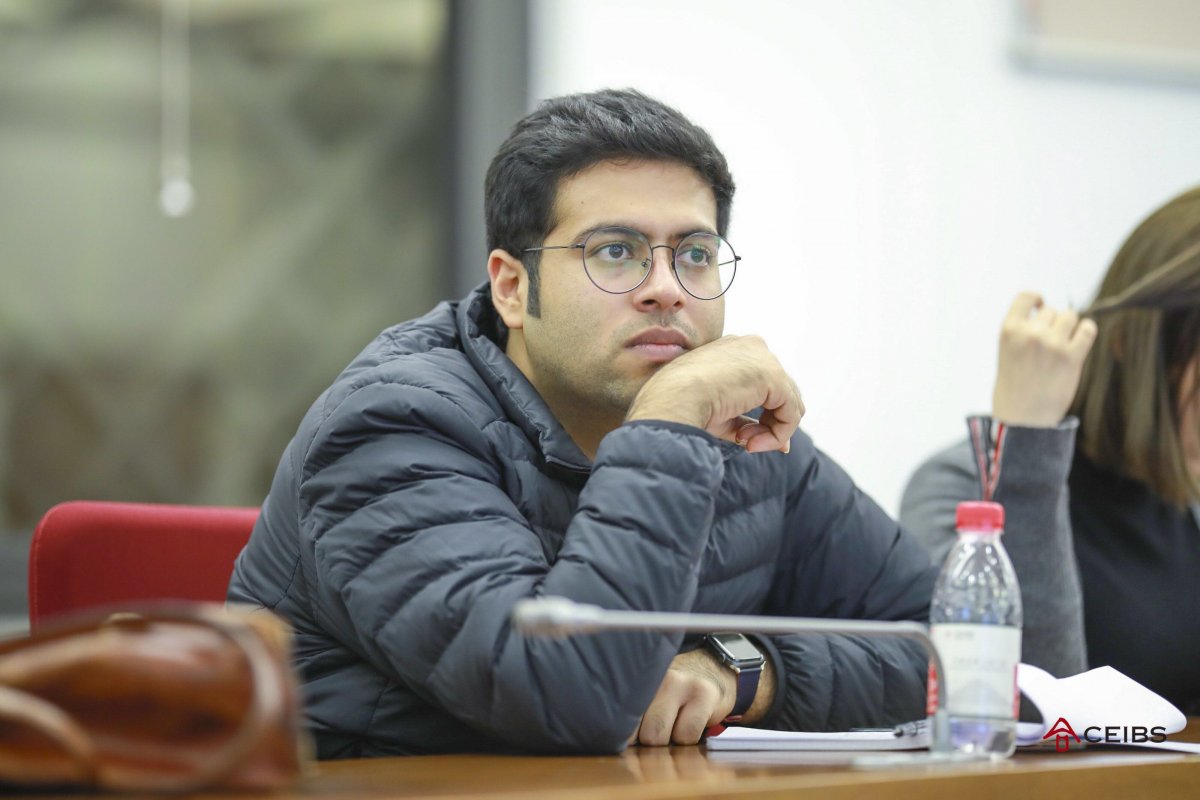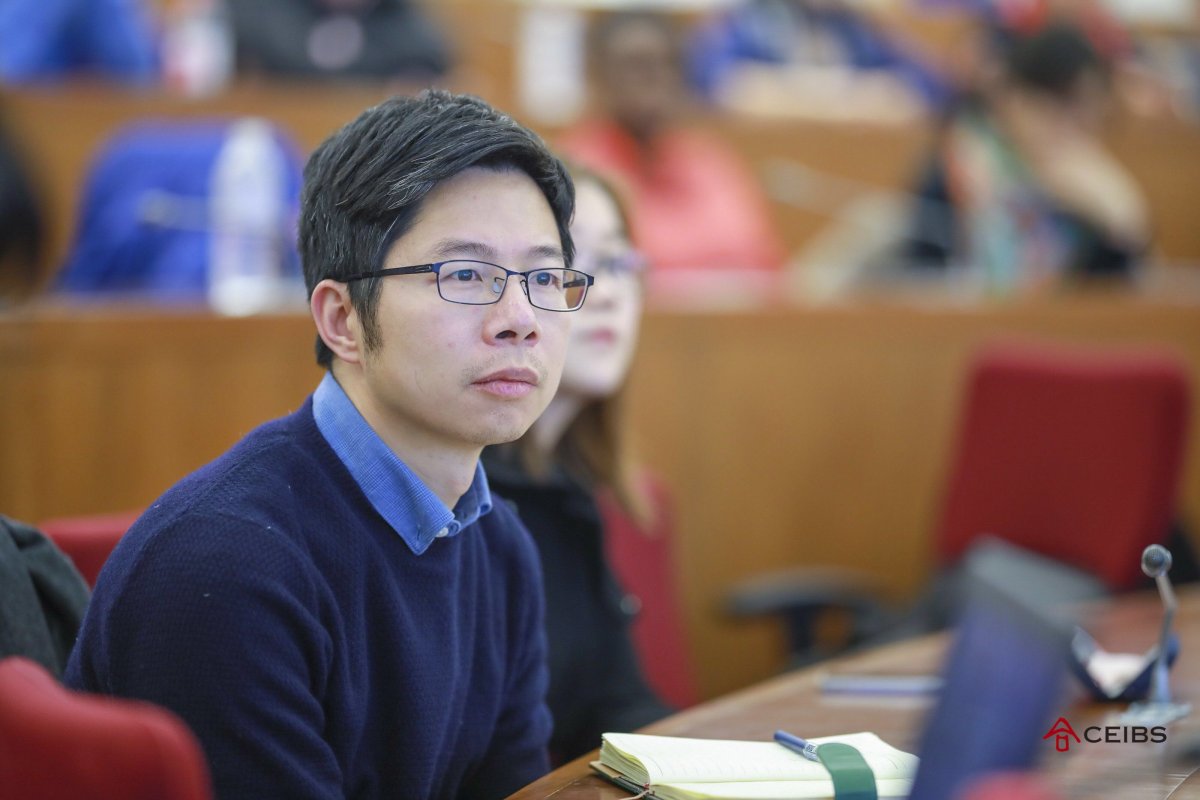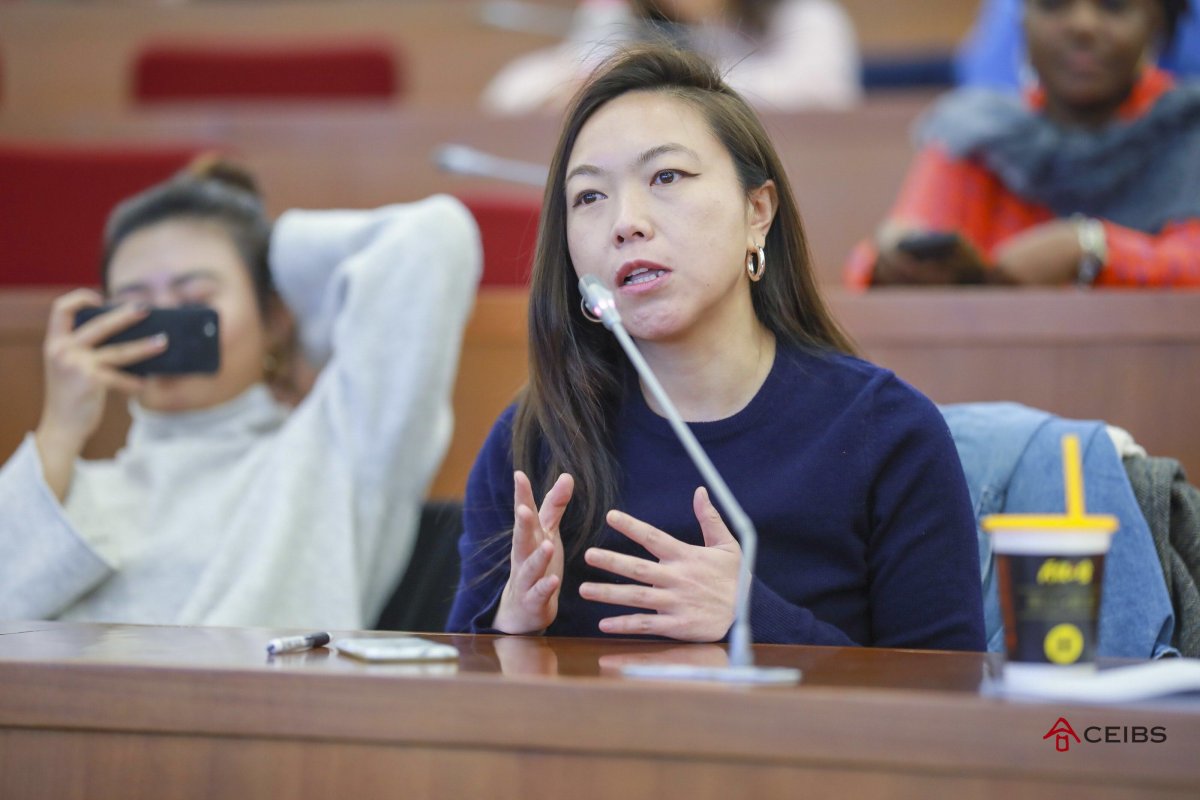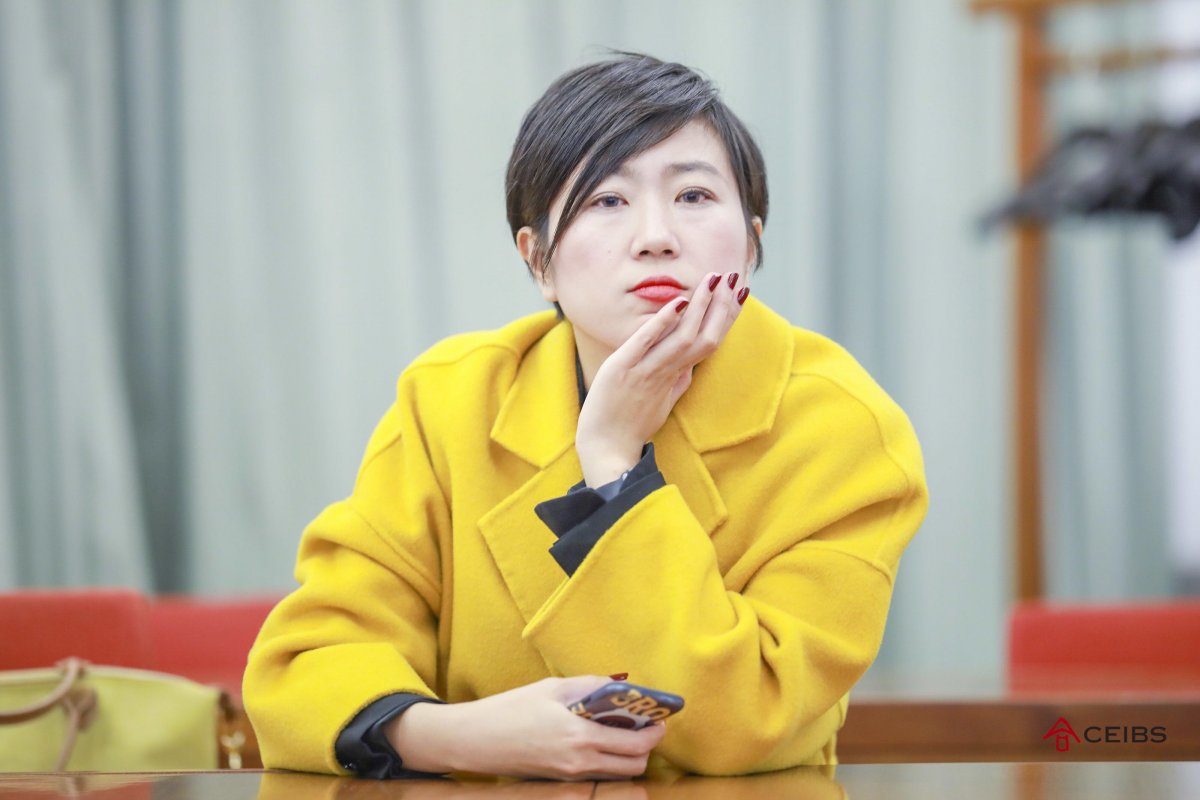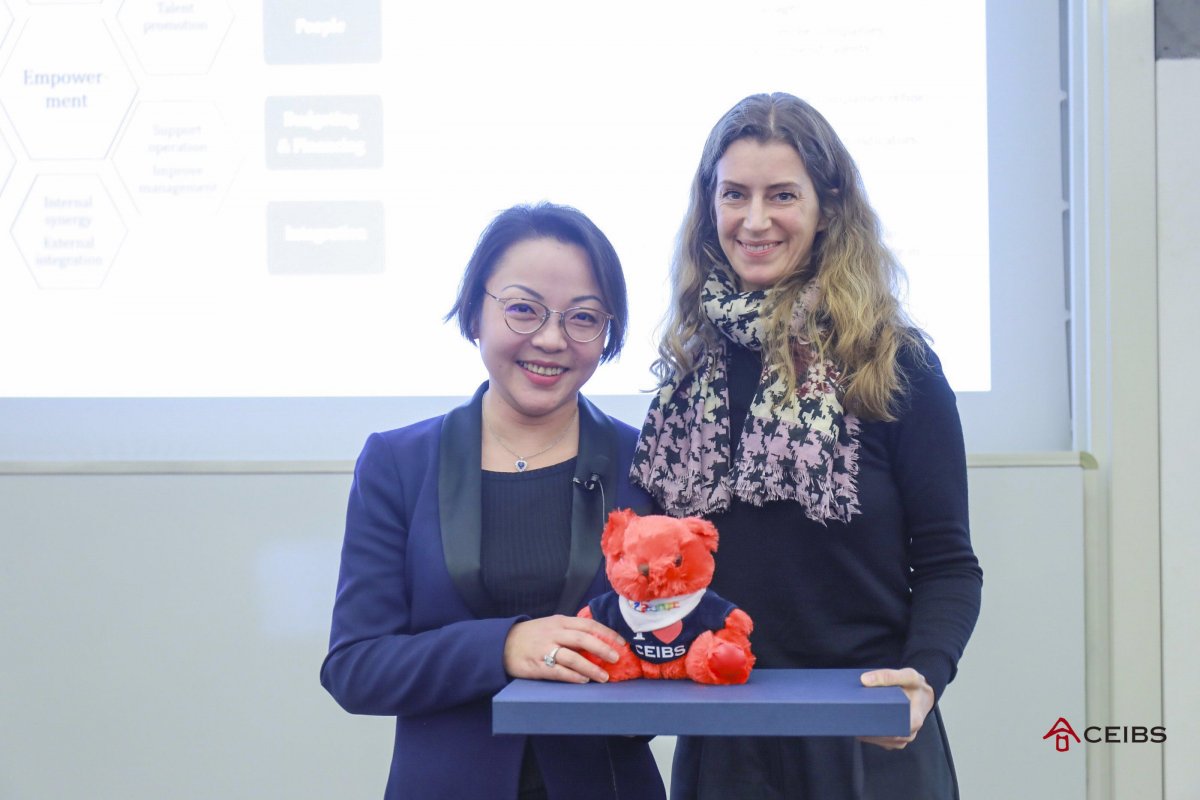Fosun Fashion Group Chairman: Perspective, Mind-set, and People Key to Success
January 16, 2019. Shanghai – The 2019 CEIBS Executive Forum series kicked off this evening at our Shanghai campus as more than 100 alumni, students, and members of the business community gathered for a talk by Fosun Fashion Group (FFG) and Lanvin Chairman Joann Cheng. The lecture, entitled Dedication. Diligence. Focus. – How to Empower Overseas Invested Brands, offered participants a look at how Fosun’s unique ecosystem and investment and operation strategy has transformed it into one of China’s largest international conglomerates.
In opening the session, Cheng noted that Fosun has cultivated success by creating a family-oriented ecosystem around the pillars of “happiness, health, and wealth.” Driven by technology, the company’s interests now range from tourism and fashion to pharmaceuticals and hospitals to insurance, investments, and property.
Launched in 2014, FFG’s mission is “to create happier lives for consumers worldwide” through fashion. It has since acquired a portfolio which now encompasses luxury brands such as Lanvin, Wolford, St. John Knits, Caruso, and Tom Tailor. “We want to have the brands grow internationally and in China,” Cheng said. This dual purpose has, she explained, helped FFG differentiate itself from other major players in the fashion industry. Specifically, it is able to bring a unique angle to the industry in that it embodies a consumer-centric lifestyle and perspective which is “rooted in China with a global vision”.
At the same time, Cheng asked the audience, given an over-crowded landscape and the challenge that brands have only a limited presence in China, how is it possible to make enough noise to be heard? Citing a commonly held belief that consumers can only recall between two and seven brands in a given category, she argued, “We have to make our product strong enough to stand out and make our brand easy enough to remember. Without a good product you can’t sell, but without a good marketing strategy, no matter how good your product is, it will not be remembered.”
Cheng further highlighted a number of important trends disrupting the fashion industry, including digitalisation, the desire for consumer self-expression, the “now or never” attitude to buying/selling, the impact of KOLs and social media, and a growing demand for radical transparency. “Now customers want to know where your product is made. In China? In Africa? Is it healthy? Is it green?” she said. “And, there are so many new brands coming so fast, breaking the rules, using different channels, that [existing] brands have to react very fast.”
FFG has, in part, responded to these trends by shifting from passive investment to taking a more direct role in the operation of its brands. “We are industry players,” Cheng told the audience. “We want to play in this industry.” At the same time, she said the company has adopted a more entrepreneurial mind-set when it comes to areas such as fashion tech, touching on aspects including new materials and how clothes are tailored.
Finally, as a relative newcomer to the fashion industry, Cheng admitted that the task of assembling a team capable of meeting all of these challenges is “still a work-in-progress”. Nevertheless, she emphasised that FFG is going to great lengths to find ways to empower talent, adding that “fashion is about creativity” and “people are the most critical part of the industry”.
Keep up with the latest Executive Forums and other CEIBS events by visiting our events page, here.







